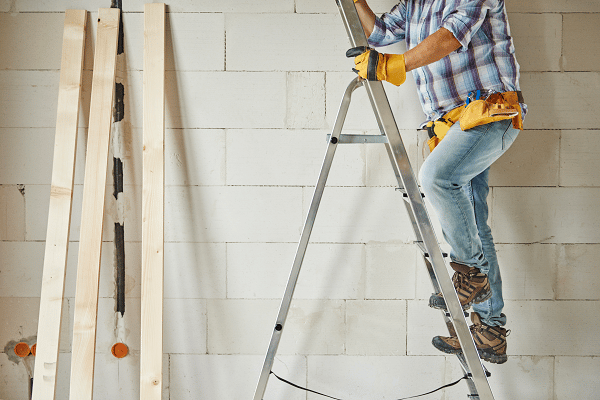Are you in the process of planning a home renovation but dread the thought of how you will pay for it? Don’t worry; plenty of great tips are out there to help finance your home renovations! This post will discuss some creative ways to generate the money you need. It will also provide some helpful resources that can make the process easier. So, whether you want to remodel your kitchen or add a new addition to your home, read on for some great tips!
Contents
The Benefits Of A Home Renovation

Any homeowner knows that a house is a never-ending project. There’s always something that needs to be fixed, updated, or replaced. While this can be frustrating, it’s also an opportunity to make your home exactly what you want it to be. A well-planned renovation can add value to your home, improve your daily life, and even make you feel happier.
Of course, a renovation is also a significant investment, so it’s important to research and ensure you’re getting the most bang for your buck. But if you’re considering a renovation, there are some benefits to taking the plunge.
Tips To Finance Your Home Renovations
If you have ever undergone one of these projects in the past, you know that they can be expensive. The average home renovation costs around $39,000. Ouch! But there are some ways that you can finance your home renovations without going broke. Here are a few tips to get you started:
Save Up

Home renovations can greatly add value to your home and improve your family’s quality of life. However, they can also be expensive, and it is crucial to consider the cost before embarking on a project. One way to finance a renovation is to save money in advance. This approach can allow you to avoid taking on debt and potentially paying interest.
But the downside is it can take a long time to save up enough money for a major renovation, and you may need to make sacrifices in the meantime. So while you may want to start saving immediately, it’s important to be realistic about how long it will take and whether you’re willing to put your dream renovation on hold for a while.
Refinancing Your Home

Over time, keeping your house up to date can become expensive, and many homeowners wonder how they will finance a major home renovation. One option is to refinance your home. This process involves taking out a new loan to pay off your existing mortgage. This can be a good option if you have built up equity in your home and can get a lower interest rate on your new loan. It can also give you access to cash that you can use for your renovation.
However, it is important to consider all your options before making a decision, as refinancing can extend the term of your loan and increase your monthly payments. You should also be aware that there are costs associated with refinancings, such as appraisal fees and closing costs. Therefore, speaking with a financial advisor is essential to see if refinancing is the right option for you.
Getting A Home Equity Loan

Many homeowners choose to finance home renovations by taking out a home equity loan. A home equity loan is a second mortgage on your home, so you’ll need to make monthly loan payments in addition to your regular mortgage payments. However, home equity loans often have lower interest rates than other types of loans, so they can be a good option for cost-effective financing. In addition, the interest you pay on a home equity loan may be tax-deductible, which can further reduce the cost of borrowing.
Before taking out a home equity loan, carefully consider your needs and goals for the renovation. Make sure you have a clear budget and plan in place so that you can make the most of your loan funds. Remember that a home equity loan is a long-term commitment, so be sure you are comfortable with the repayment terms before you sign on the dotted line.
Applying For A Government Loan

When it comes to home renovation, there are many different financing options available. One popular option is to apply for a government loan. You can use government loans for various purposes, including home improvement projects. There are several benefits to using a government loan to pay for your home renovation. First, government loans often have lower interest rates than private loans. This can save you money over the life of the loan.
Second, government loans may offer longer repayment terms than private loans, giving you more time to repay the loan. Finally, government loans may provide special programs or incentives to help you save money on your home renovation. Before deciding whether to apply for a government loan, research all your options and compare the costs and benefits.
Using Credit Cards

Renovating your home can be costly, but there are a few ways to finance the project without breaking the bank. One option is to use credit cards to pay for the renovation. This can be a great way to access funds quickly, and many cards offer introductory 0% APR periods, which can help you save on interest. However, it’s important to be aware of the potential risks involved with this strategy.
For instance, if you cannot repay the debt within the 0% APR period, you’ll be subject to interest charges that can add up quickly. Additionally, using credit cards to finance a home renovation can impact your credit score. If you have other plans to borrow money in the future, you may want to consider another option.
Taking Out A Personal Loan

One final common method to finance a home renovation is to take out a personal loan. The terms of personal loans vary depending on the lender, but they typically have fixed interest rates and repayment periods of three to five years. You can obtain personal loans from banks, credit unions, and online lenders. But before taking out a loan, it’s important to consider the pros and cons.
On the plus side, a personal loan can give you the money you need to make your renovation dreams a reality. It can also help you save on interest costs by consolidating multiple debts into one monthly payment. On the downside, personal loans typically come with high-interest rates, which can add significantly to the cost of your renovation. Additionally, missed or late payments could damage your credit score.
Consider Your Options To Finance Your Home Renovations!
These tips can help you finance the project without breaking the bank if you’re planning a home renovation. And while there are many different ways to finance a home renovation, the best option for you will depend on your circumstances and goals. Be sure to consider all of your options before making a decision. And remember, no matter how you choose to finance your renovation, be sure to have a clear budget and plan in place so that you can make the most of your funds.


